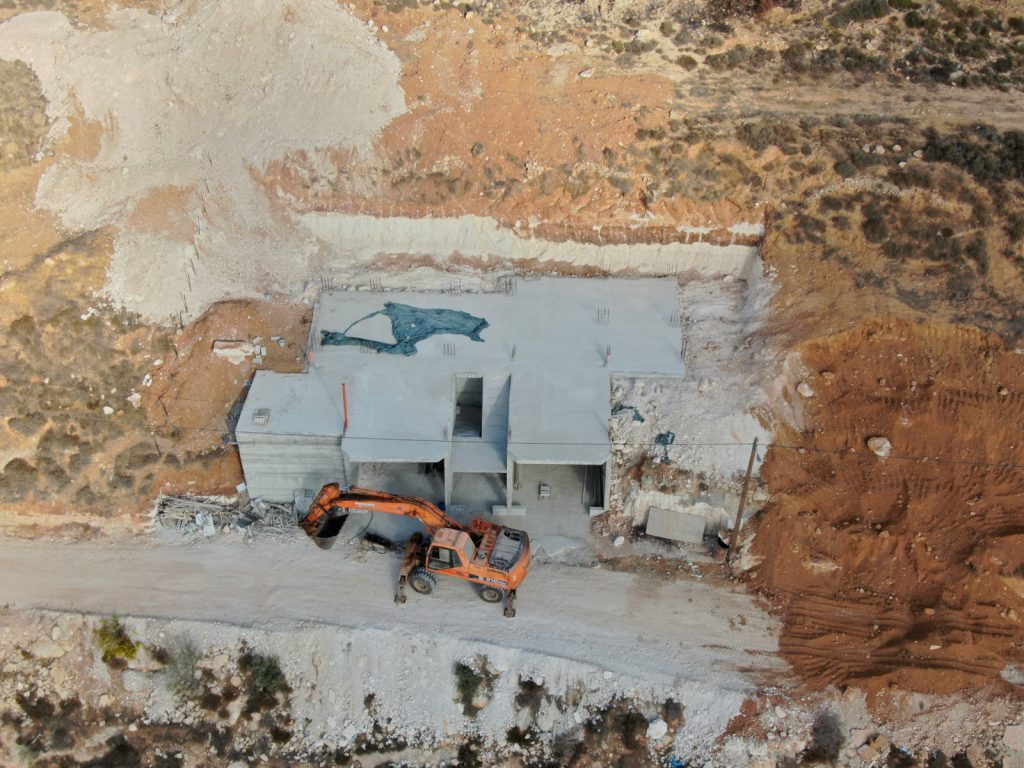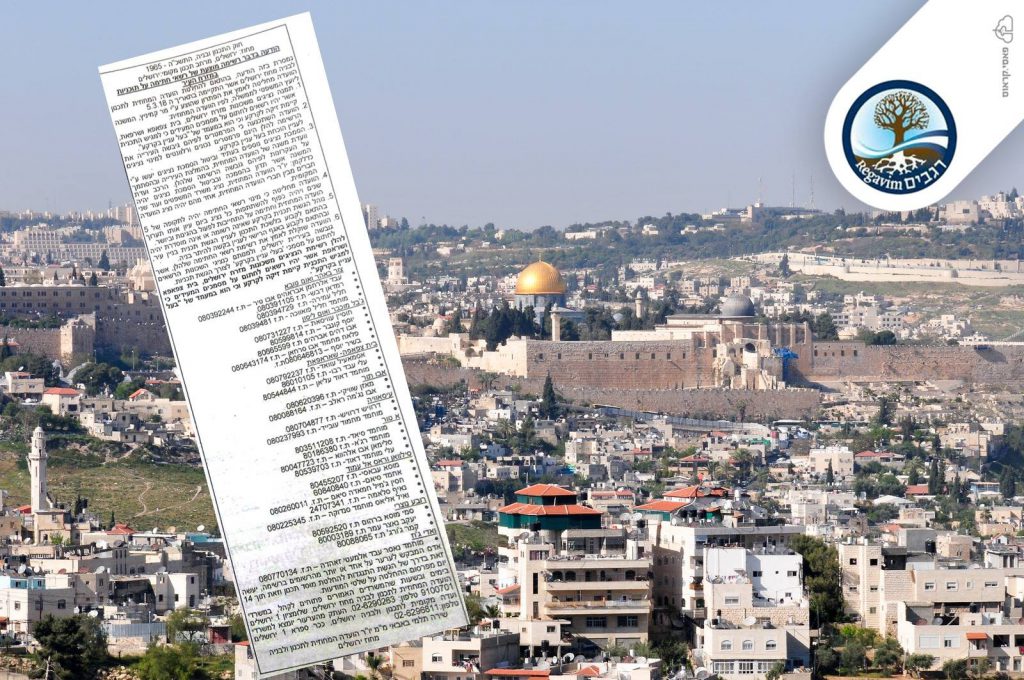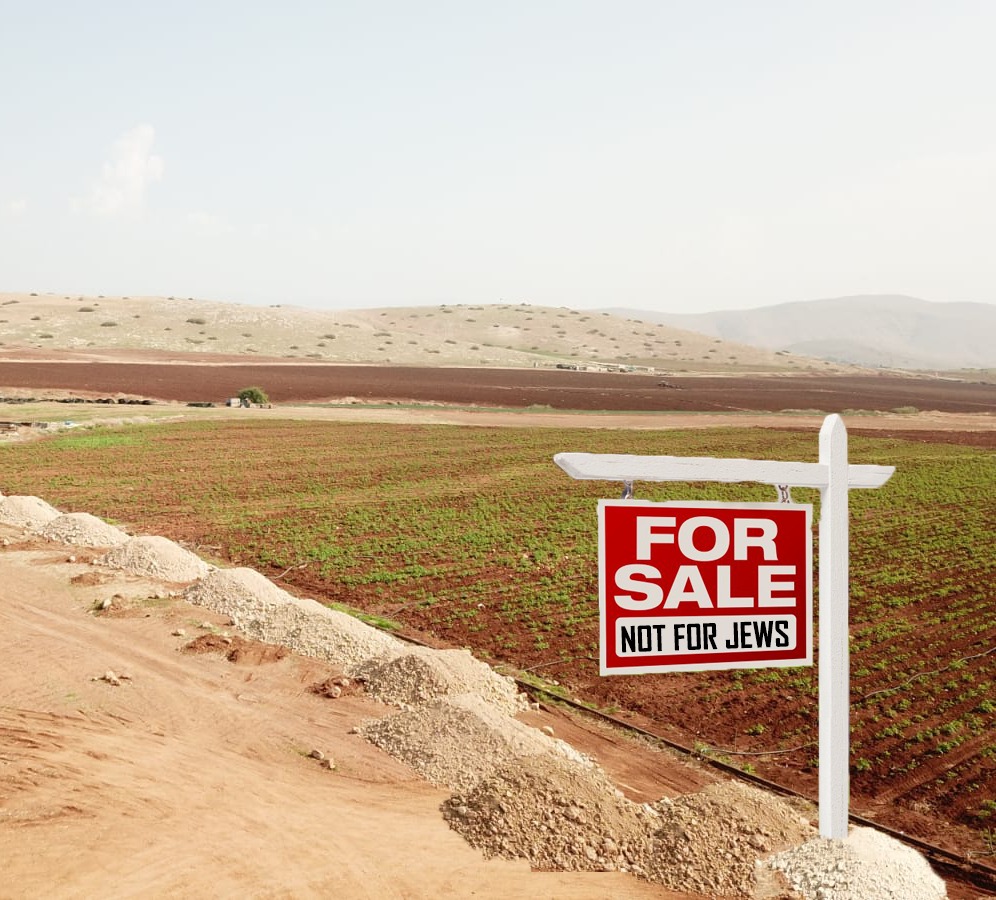The High Court of Justice rejected the Regavim Movement’s petition to repeal Jordanian Law #40 which prohibits the sale of property in Judea and Samaria to Jews, on the grounds that “there is no call for intervening in matters of state”: “Despite the difficulty we have in coming to terms with the language of the law, there is no justification for this Court to intervene.” Regavim: “The High Court is enabling appalling discrimination. This is the first test of the new government’s mettle.”
Yesterday (Wednesday), the High Court of Justice rejected a petition filed by the Regavim Movement to compel the military commander and the Civil Administration to repeal Jordanian Law #40 which prohibits the sale of land in Judea and Samaria to Jews – a law still in force due to Israel’s decision not to extend its law or sovereignty to territory liberated in 1967.
In the High Court hearing earlier this week, Regavim’s attorney, Boaz Arzi, argued that this patently racist law should be struck down without further delay. In an earlier stage of the case, the High Court issued a conditional order requiring the government to respond within 60 days and explain why this discriminatory law should be allowed to stand. The attorney representing the Civil Administration argued that no real harm is caused by Jordanian Law #40 to Jews who wish to carry out real estate transactions in Judea and Samaria: the state’s work-around solution allowing would-be buyers to incorporate as a legal entity in Judea and Samaria in order to circumvent the antisemitic restriction against individuals, they argued, was sufficient. Regavim’s attorney responded: “Focusing on the quantity of transactions obscures the real issue. This is racism.”
The government’s representatives also argued that a committee, headed by the Assistant Minister of Defense, had examined the issue and determined that the restriction is “minor” while the level of political sensitivity regarding land in Judea and Samaria is immense. Therefore, the state argued, there is no justification for the Court to intervene in decisions taken by the military commander. Justice Groskopf noted, “The law is racist; that is clear. However, the cost outweighs the benefit. Essentially, the question is whether the considerations of the military commander in this matter are reasonable or unreasonable to the extent that the intervention of the Court is necessary.” The panel of three Justices accepted the State’s argument and rejected Regavim’s petition.
Jordanian Law #40 prohibiting the sale of property to non-Muslims was passed in the 1950s, during the illegal Jordanian occupation of Judea and Samaria following the War of Independence. Although the occupation came to an end in 1967, Israel refrained from extending sovereignty to the territories it had liberated, holding them in a “temporary” state of limbo in order to negotiate a political resolution to the conflict. Ever since, land purchases for Jewish settlement and development has been carried out through a bureaucratic-legal process designed to circumvent, but not annul, the anti-Jewish Jordanian law. In 1971, the IDF Chief of Central Command issued an order permitting commercial entities to purchase land in the area; individual Jews are barred from purchasing land to this very day. Regavim argued that the technical difficulties created by this “work around” are significant – and are nonetheless overshadowed by the inherent racism underlying the law itself, and the violation of Jews’ basic rights.
“This is an outrage,” says Meir Deutsch, Director General of Regavim. “For the first time, the High Court of Justice is upholding and permitting continued racial discrimination, hiding behind supposed diplomatic repercussions. No such discrimination against Arabs would be allowed, even if the government argued that there would be certain political or diplomatic fallout.” Deutsch added, “Can you imagine if the US Supreme Court had argued that because public transportation was readily accessible for black people, the cost of allowing them to use the front of the bus outweighed the benefit that would be achieved by judicial intervention?! If the Justices of Israel’s Supreme Court had been on the bench in the US, Rosa Parks and all those who came after her would probably still be on the back of the bus, and racial discrimination would still be the law of the land.”
“Law is an expression of a society’s values,” said Attorney Boaz Arzi. “Are these the values that we expect our justice system to uphold? We call upon the newly-elected government to reassert Jewish rights and the foundational principle of equality under the law that are the bedrock of the modern Jewish and democratic State of Israel.”











